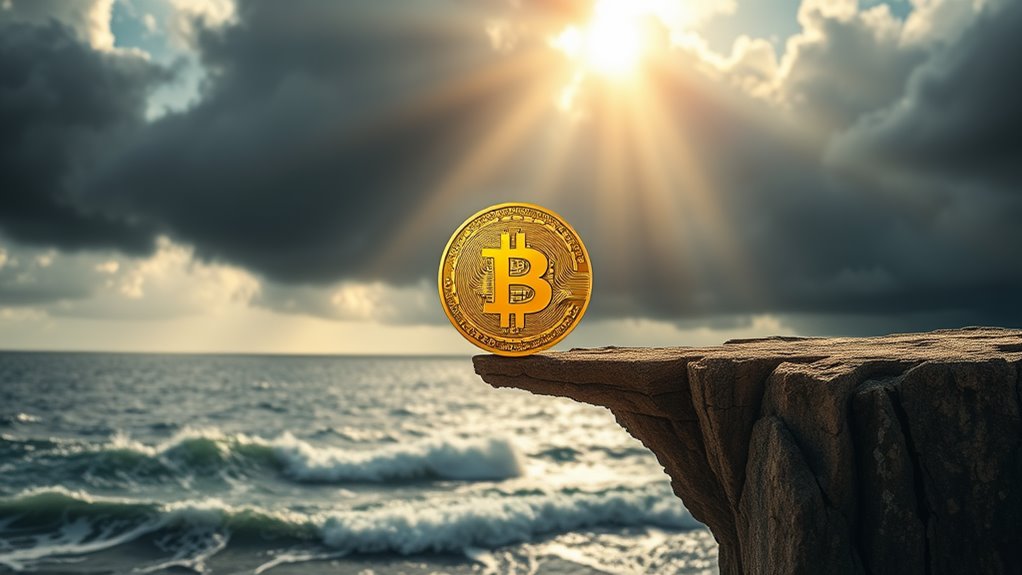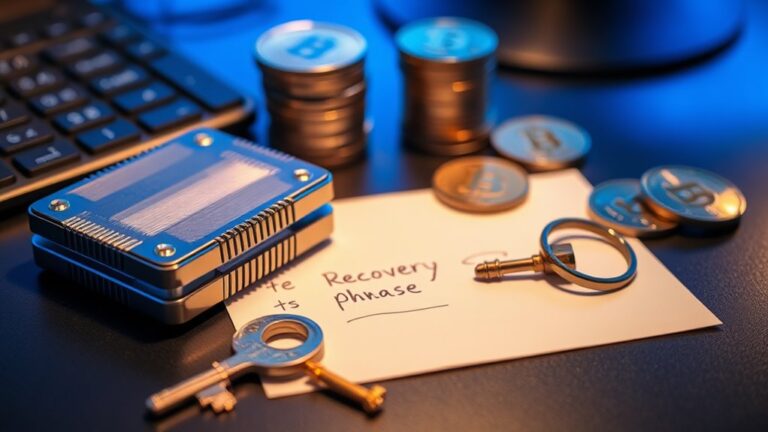Is Digital Coin a Good Investment?
Note: This post may contain affiliate links, and we may earn a commission (with No additional cost for you) if you purchase via our link. See our disclosure for more info. The gold and crypto world is constantly changing. This is not financial, investment, legal, or professional advice. So, please verify the information on the gold and cryptocurrency provider’s websites.
Is digital coin a good investment? Well, that's a loaded question. Think wild price swings, like Bitcoin peaking at $65,000 then crashing down to $20,000. Speculative? Absolutely. No dividends, just hype and market mood swings. Risks? Tons—security, regulation, and environmental impact, to name a few. Sure, some early investors hit the jackpot, but jumping in can feel like a gamble. Curious? More insights await on the wild world of digital currencies.

Is digital coin truly a good investment? Well, that's a loaded question. On one hand, you have Bitcoin, which skyrocketed to nearly $65,000 in November 2021. Then, like a rollercoaster, it plummeted to around $20,000 a year later. Talk about a wild ride! Cryptocurrencies are notoriously volatile. Prices swing like a pendulum based on market sentiment, not actual value. It's a speculative playground, and if you're not watching the prices like a hawk, you might get burned.
Digital coins are a wild ride; prices swing dramatically, driven by market sentiment rather than real value.
Let's be real: investing in crypto is like gambling. There's no steady cash flow. No dividends. Just pure speculation. The value of these coins hinges on buzz, hype, and that FOMO—fear of missing out. Long-term viability? A big question mark. Regulatory changes could send prices crashing down, making it a risky game. Additionally, cryptocurrencies serve as mediums for transactions, not traditional investments. Many cryptocurrencies operate through a decentralized network, which adds another layer of complexity to understanding their value.
But hey, some early Bitcoin investors got rich—tenfold growth over five years! That's the allure. Plus, there's talk about staking and decentralized finance (DeFi) for passive income. The market cap hit $2.4 trillion, so there's potential. But diversify, folks! Don't put all your eggs in one virtual basket.
Now, let's talk risks. Mining crypto is not eco-friendly. Energy consumption is through the roof. Security is a nightmare—wallets get hacked, exchanges have issues. Legitimate platforms implement KYC procedures to verify user identities and prevent fraud, but not all exchanges prioritize these safeguards. And let's not forget the shady side of crypto; it's a playground for fraud. Regulatory crackdowns loom like a storm cloud. It's complicated, folks!
Experts say keep your crypto stash to about 10% of your portfolio. Mix it up with stocks and bonds. Prioritize retirement savings and paying off debt first. And always do your homework. That's a must. Blockchain technology? It's revolutionary but also complex.
Frequently Asked Questions
What Factors Influence the Value of Digital Coins?
The value of digital coins? Oh, it's a wild ride.
Supply and demand? Huge. A rush of buyers can send prices soaring.
Then there's market sentiment—panic or greed can flip values on a dime.
Don't forget about those big players, the whales. They can shake things up with one massive sale.
Tech quality and project credibility matter too. If a coin's backed by solid utility? That's a game changer.
How Do I Securely Store Digital Coins?
Storing digital coins securely? It's not just a good idea; it's essential.
Hardware wallets keep your keys offline, away from hackers. Think of them as your personal vaults.
Cold storage methods like encrypted USB drives or paper wallets? Solid options.
Just remember, if you lose your keys, good luck getting your coins back. It's like losing your wallet in a black hole.
Stay smart, stay safe, and don't leave your crypto lounging online.
Are Digital Coins Legal in My Country?
Digital coins aren't universally accepted, and legality varies wildly. Some countries are all-in, like El Salvador with Bitcoin as legal tender.
Others? Not so much. Think China—crypto? Nope.
Then there are places like India, stuck in limbo. Regulations are popping up everywhere, with the EU tightening the reins.
It's a confusing mess. So, before diving into digital coins, check your local laws. It's not just a free-for-all out there.
Can I Use Digital Coins for Everyday Purchases?
Digital coins are creeping into everyday purchases, no doubt. They snagged 27% of the retail and e-commerce market.
Gamers and social media users are already on board. Bitcoin, Ethereum, and Litecoin are the big players.
But let's be real—using crypto isn't as smooth as cash. Volatility lurks like a pesky fly. Security issues? Oh yeah, they're there too.
What Are the Tax Implications of Trading Digital Coins?
Trading digital coins? Get ready for a tax headache.
Every sale, exchange, or purchase triggers a taxable event. Yep, even bartering BTC for ETH counts.
Mining? That's income, taxed right off the bat.
And don't forget about airdrops—those are instant taxable income too.
Long-term or short-term gains? They're taxed differently, and good luck keeping track of it all.
If tax forms sound boring, just wait until the IRS comes knocking!












